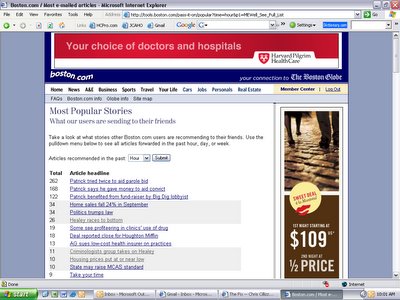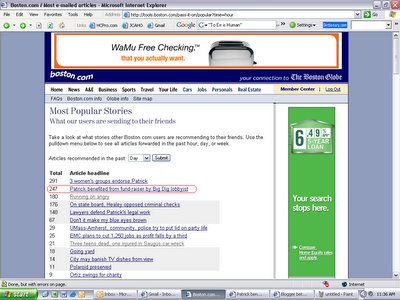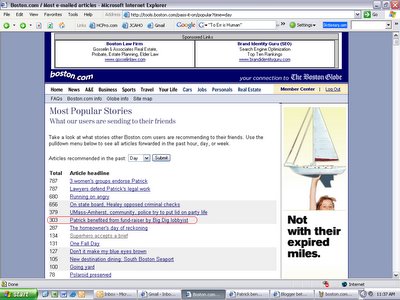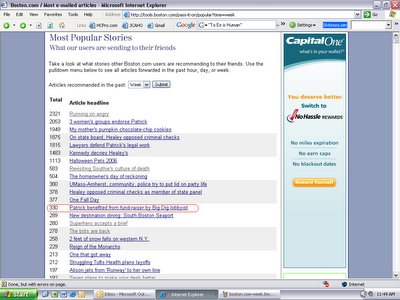There are a couple of things that make me think things are not occuring organically:
1. These top stories are listed according to e-mailed recommendations made within the last hour
2. The top stories all ran days earlier
Here's a screenshot of the top rankings at about 10 a.m. this morning:

The top story? It's LaGuer, which originally ran Oct. 4! All of a sudden, 262 people saw this and had to recommend it to their friend? Three weeks later? Same thing with the second story, which is about Patrick donating money towards a DNA test for LaGuer, which ran Oct. 5.
Remember, today's Oct. 24.
It doesn't just go one way, though, as a friend pointed out to me. A lot of recent "top stories" on boston.com have been about women's groups endorsing Patrick, Criminologists hating on Healey, and lawyers defending Patrick.
So you tell me: How do these weeks-old stories all of a sudden become super popular? Is it that hard to imagine both campaigns putting an intern in front of a computer to send out recommendations all day and keep stories up in the mix?
To test my hypothesis further, I just e-mailed a story (Girls Soccer Stars!) to five people at once, and it showed up on the list as one recommendation. So when we talk about 262 recommendations, that's 262 times people looked at the article, clicked on the "e-mail to a friend" link, and sent the article to a buddy. So 262 people in the past hour decided to e-mail out a three-week old story that's dominated the headlines and commercials for nearly a month? C'mon now.


